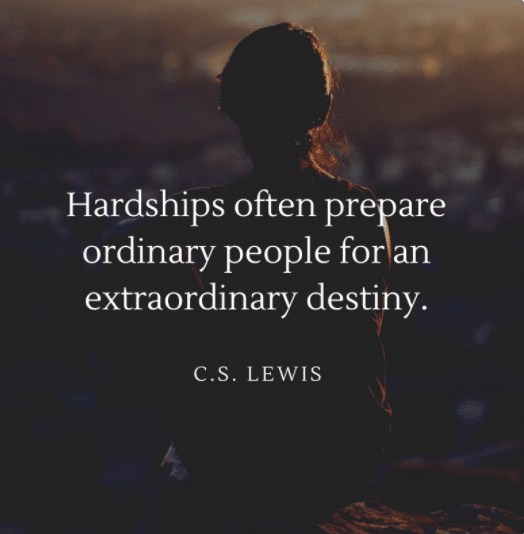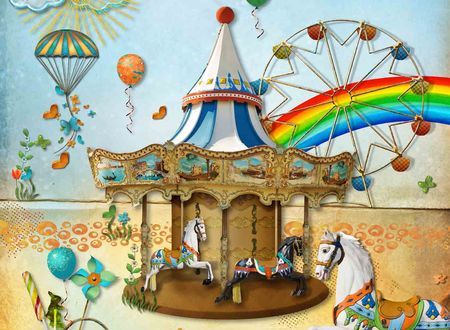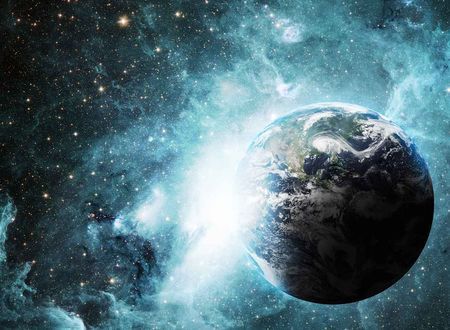A common argument is that one should have faith in God, He will do what’s needed, that things will happen only when they are destined, and so on and so forth. Does that imply everything is predestined, preordained? And if it is so, what is the need to do any karma? What is the truth: destiny or free will? There is no doubt, from where I see it, that destiny plays an important role. Before I dig deeper, let me narrate a story to you:
Once upon a time, a man on his way to another town in search of a livelihood had to pass through a jungle. It so happened that he lost his way in the woods. Roaming helplessly, he came across an old banyan tree, its roots hung low and it canopied a wide area. He saw a fox sitting under the tree. At first, he was scared, but thereafter, relieved, for he noticed that it was lame, an old fox, mostly disabled, and unable to hunt.
He sat there in a shady corner. What he witnessed a while later amazed him, he observed birds who sat on the tree occasionally dropped pieces of meat, and the fox fed on them. That was how it survived. It dawned on the man that there was no need for him to run around, that, he too, like the fox, could just take up a corner somewhere, God would provide for him too.
Subsequently, he managed to navigate his way out of the forest and parked himself under a tree outside the first village he came across. He vowed to surrender to God and only live off what was offered to him. Days went by but no one offered him anything. He was starving, on the verge of collapsing. His faith shook, just short of shattering, and he wondered, how could God be partial? how come he provided for the fox and not him?
While he was engrossed in his own world, he saw a sannyasin, a mystic, pass by. In his frail condition, he called out to the mystic, narrated his story, his predicament, and put to him the question that bothered him. The monk chuckled, and said, “Who told you to take on the role of the fox? Are you lame? Disabled? You should be the bird, working for yourself as well as providing for those who depend on you.”
The anecdote has two morals, one, we cannot pick and choose roles as per our own convenience, we have to be pragmatic, realistic, and honest with ourselves, and two, surrendering to God or having faith in Him does not mean we cease to make an effort.
So, what role does destiny play? Let me offer you two verses from the ultimate scripture on karma yoga:
Pañcaitāni mahābāhō kāraṇāni nibōdha mē ।
Sāṅkhyē krtāntē prōktāni sid’dhayē sarvakarmaṇām ॥
Adhiṣṭhānaṁ tathā kartā karaṇaṁ ca prthagvidham ।
Vividhāśca prthakcēṣṭā daivaṁ caivātra pañcamam ॥ (Bhagavad Gita, 18.13, 14)
Hence: There are five constituents that comprise an action. The execution of karma is not solely dependent on any one factor. Support (or the approach, motive, influence, or environment), the doer, resources, effort, and destiny are the five elements.
Interestingly, in the aforesaid verses, destiny is labeled as daivam, divine grace, not bhagya, plain fate. The one who puts in a sincere effort becomes a worthy recipient of grace. Non-attainment of your goals is not always a failure; giving up, may well be.
Destiny plays an important role, it is no more than twenty percent though. If you operate in the right environment, conducive to your karma, tap into the resources required to execute your plan, and stay persistent, your plans will materialize before long. No one has won the lottery without being in possession of a ticket first, whether it was bought or gifted, regardless. This world, the whole universe operates on an interdependent phenomenon, it is interlinked, and every action you perform can have far-reaching implications, almost like the butterfly effect where a small change, a slight modification, in a complex system can completely alter the final outcome.
If you are serious about attaining your goal(s), you have to operate in the right environment; you cannot practice swimming in a desert. When you engage in a relentless pursuit in a supporting environment, your chances of gaining access to the right resources increase automatically. Very little is left thereafter.
A wonderful Italian devotee, an engineer by profession, asked me once, “Why is it that spirituality flourished in India? How come it is home to some of the greatest spiritual leaders in the world?”
To answer, I asked her a question in return, “Why is it that start-ups prosper in Silicon Valley? How come it is home to some of the finest tech companies in the world?”
When you make an explicit attempt to address the four elements above, the fifth one, destiny, makes way for you. Your chances of being in the right place at the right time go up significantly.
What about those who seem to get it easy, who seem to be an exception to the guidelines above? Is their life not predestined? Well, whether you want to try your luck in the tiny subset of exceptions, hoping good things will just happen, or you wish to act in the large playground of norms, working towards attracting the desirable, that is your personal choice; be sensible.
To fellow Indians, at home and abroad, I wish you a Happy Independence day.
Vande Mataram, all glories, my obeisances to the motherland.
Swami
Editorial Note
There are two basic options we have when it comes to the question of destiny: either everything is predetermined and we are predestined, or we are free to choose our destiny. If you’re a believer in fate, then your life has already been written. You might believe that God knows everything that will happen in your life, including the choices you will make and how those choices will affect your future. This means that if you choose something different from what God had planned for you, then something else would have happened instead—which would mean that your choice wasn’t really free but simply another step on a predestined path toward some other predetermined outcome. On the other hand, if God doesn’t know what’s going to happen in our lives because our decisions shape our future as much as anything else does (or more), then we must be able to change things by making new choices; otherwise there would be no point in making them!
Still, here are some FAQs that may shed more insight on destiny and free will for the curious mind.
1. Is life predestined?

Our future is not set in stone, not everything is predestined. You can rewrite your script and work towards any desirable outcome, provided you understand that the goal you aim for may not be the outcome you actually seek at all.
Or that the result you desire may not give you the fulfillment you anticipate. A lot can change, and often changes, from the moment we begin our journey to the time we reach our destination.
If you are one who believes that everything is predestined and are now confused, The Four Truths of Life may provide some clarity.
2. Do human beings have free will or is life predestined?

In my view, the question of destiny or free will is a philosophical problem and has little to do with our real lives.
This question has no meaning to begin with. Just because we can string together some words and put an interrogative mark at the end does not mean we have formed a valid question. For one thing, we can neither prove nor disprove either destiny or free will. When you take one as the sole truth, you’ll find plenty of contradictory evidence.
With destiny, we are assuming that something that is bound to happen will happen no matter what. And the concept of free will states that our life happens to us at our discretion, that we make free choices uninfluenced by anything called karma, destiny, or whatever.
The truth is somewhere in between. Perhaps a short story on destiny or free will could settle this eternal debate.
3. Assuming free will exists, how do I work my way towards success?
So, you are not one who believes that everything is predestined. You are willing to work hard and attain success.
The first thing to shift then is your mindset. If you say, I can’t do it, you are right already. But, if you ask, how can I do it, at least your mind will shift from denial to a thinking mode. And, all is possible when the human mind begins to pursue a line of thought.
In some way, people who succeed at anything in life are not usually sane. I say this appreciatively. There are four insanities they live and breathe. I call it the EPIC model.
- Insanely Enthusiastic
- Insanely Persistent
- Insanely Independent
- Insanely Clear
These Four Traits of Successful People will get you anywhere you want to go.
4. What is life really all about?
Let’s forget destiny and free will for a moment. Is life predestined? We won’t answer that. Instead, let’s talk about what life really is.
Life is anything but one chunk. Indeed, it is made up of a series of moments and experiences.
What if I told you that in one life, we actually live many lives? And that it’s up to us to make the most of every life we live in one lifetime. Every decade we live through turns us into a different person. Each decade is a new life of sorts.
- 0-10
- 11-20
- 21-30
- 31-40
- 41-50
- 51-60
- 61-70
- 70-80 & onwards
Read all about it in One Life Many Lives.
5. What role does karma play in destiny and free will?
Destiny is not something that can be proven. The truth is, anything can happen to anyone. It doesn’t matter how good your karma is or how sound your destiny. One must always work in life believing in karma. Destiny can only play a role if you become a worthy recipient.
The video below talks further about how transforming our life is in our hands.

Timeline:
- 0:37: Destiny cannot be proved
- 2:03: The king who couldn’t thwart death
- 3:40: Belief in karma
- 11:26: Strengthen yourself to such a degree that the universe bows down before you
6. Is death predestined?
Watch this informative video to understand the life and death cycle defined with the concept of Karma. Journey of a soul. In this video, monk Om Swami sites examples to explain how your karma shapes your destiny. When you have a million dollars in your bank account, your capacity to spend is one million dollars assuming there are no debts. It is your ability to spend that money. Similarly, based on your karmic balance you get a choice of womb. What kind of family you would like to join. It is not that you are there for a few days or a few years; you can be there in that state for one thousand years. If you look at how procreation happens, out of millions of sperm, one gets a chance. The others somehow will have to go back into the play of nature, come back as sperm and aim for life again. It can take many years before you are back in another body. That state is called bardo state, a Tibetan word. It is the intermediate state, a long pause. Based on how much you can afford from your karmic account, you get into next family. Everybody wants to be born to rich parents, to loving parents but why do they not get it? It is because they can’t afford it. That is why karma never perishes.
7. Is marriage predestined? Is life partner predestined?
Any human being is tied up with their karma and that determines their birth, parents, their partner in marriage and their death. With intense meditation practice when one has conquered their mind, they may be able to change their fate of marriage relationship. Source- Om Swami lectures and discourses.
8. “ What is double predestination in the Bible?”
Double predestination is the belief that God has elected some people to salvation and others to damnation.
Double predestination is a controversial doctrine that has been rejected by many Christians. It was affirmed by Augustine of Hippo and Martin Luther, who wrote in his book On the Bondage of the Will (1520) that “God foreordained all things that come to pass, even those which He does not will” (Chapter 12).
Double predestination is not found in the Bible, but it is often defended using passages such as Romans 9:11-13: “For I could wish that I myself were accursed from Christ for my brethren, my kinsmen according to the flesh, who are Israelites; whose is the adoption as sons, and the glory and the covenants and the giving of the Law and the worship and the promises; whose are the fathers; and from whom is Christ according to flesh, who is over all, God blessed forever. Amen.”
The idea here is that God made a choice before creation between those who would be saved or damned forever. It is argued that this choice was based on God’s foreknowledge of whether someone would believe or reject Christ when they were faced with the gospel. This is a very controversial idea for many Christians who believe that God’s grace is sufficient for all people, even those who have never heard of Christ.
9. “ What is double predestination paradox?”
The predestination paradox is a paradox that results from the combination of two propositions: (1) God exists and (2) Free will exists.
The paradox arises because if God exists, then it seems that He must have at least one of the following attributes: (a) He must know everything that will happen before it happens; or (b) He must be able to do anything that He wants; or (c) He must be able to make any outcome whatever happen. But if God has any of these abilities, then they would seem to imply that what people do is already determined by God’s actions and knowledge, and so their choices would not be free after all.
A GOOD STORY
There were four members in a household. Everybody, Somebody, Anybody and Nobody. A bill was overdue. Everybody thought Somebody would do it. Anybody could have done it but Nobody did it.
Don't leave empty-handed, consider contributing.It's a good thing to do today.









Comments & Discussion
5 COMMENTS
Please login to read members' comments and participate in the discussion.